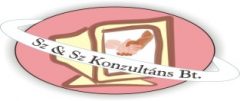
Accounting is not a new concept; its origins can be traced back to thousands of years when ancient civilizations existed. One of its earliest pieces of accounting evidence was found in ancient Mesopotamia, while early auditing forms were found in Babylonia and Egypt and bookkeeping in Iran. During the reign of Emperor Augustus, in-depth financial data was accessible to the Roman Empire.
Understand tax.
Operating activities include generating and spending cash for business activities. Businesses consider receipts from sales of goods, bank account interest, payments made to vendors, and wages paid to employees as operating activities. Accountants calculate cash flow by making adjustments to a business’s income statement. Through addition and subtraction, bookkeepers remove non-cash items and transactions from the net income.

Does my small business need a CPA?
This is the practice of recording and reporting financial transactions and cash flows. This type of accounting is particularly needed to generate financial reports for the sake of external individuals and government agencies. These financial statements report https://www.bookstime.com/ the performance and financial health of a business. For example, the balance sheet reports assets and liabilities while the income statement reports revenues and expenses. Financial accounting is governed by accounting rules and regulations such as U.S.

How Do I Set up a Small Business Accounting System?
Inventory refers to the goods and materials your business holds for resale or production. Since they have value, these items need to be accounted for just like any other aspect of your finances. Inventory accounting helps you understand the value of your goods, so you can make informed decisions and maintain a healthy bottom line. Learn the basics of inventory accounting and get a better understanding of your financial position.
This deadline includes mailing copies of the tax forms to the people who worked for you. Keep a record of each of your vendors that includes billing dates, amounts due, and payment due dates. If vendors offer discounts for early payment, you may want to take advantage.
When you stay on top of your bookkeeping and accounting processes, you empower yourself to make wise financial decisions. With these basic accounting tips for small-business owners under your belt, we’re sure you have the tools you need for small-business success. Cost accounting is often a prerequisite of managerial accounting because managers use cost accounting reports to make better business decisions. It also feeds into financial accounting since costing data is often required when compiling a balance sheet. Companies hold a certain amount of inventory, or finished products/goods, that have not yet been sold.
Learn the basics of small business accounting
- Accounting firms generally charge by the hour, though some analytic functions cost more than others.
- Very small businesses can use it for basic money management, like sending invoices, monitoring financial accounts, accepting payments, and tracking income and expenses.
- Eligibility standards also include at least 150 hours of higher education covering related coursework.
- While you could handle accounting for your small business on your own, you may consider outsourcing it to an accounting pro.
Without accounting, it would be incredibly difficult to gauge your business’s performance and whether it’s on track to meet its goals and obligations. Accounting requires meticulous record-keeping and financial transaction tracking year-round. Moreover, keeping accurate records helps ensure your business is prepared to file taxes, present information to investors or even apply for a loan. Record each transaction (billing customers, receiving cash from customers, paying vendors, etc.) daily or weekly, depending on volume.

The company can use this financial data for budgeting, forecasting, and making financial decisions. Cash flow statements include internal and external cash inflows and outflows over a certain period, including investments, financing, and operational costs. Proper documentation of financial transactions like purchases is important for preparing financial statements what is business accounting like balance sheets, preparing tax returns, and monitoring a company’s financial health. If you already use expense tracking software, you can document receipts and invoices within the same platform for easier accessibility and organisation. To better manage finances, business owners can use accounting principles to track inventory, profit and loss, and cash flow.
